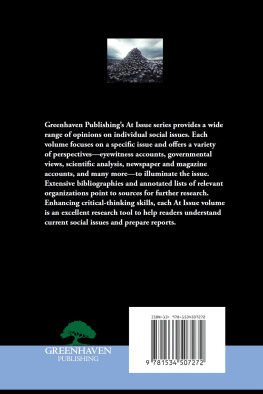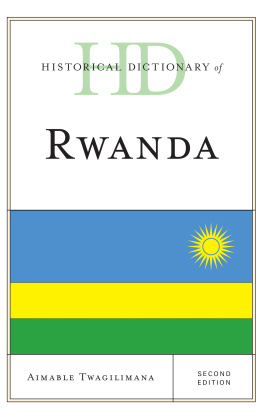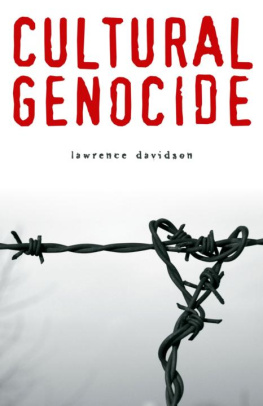Linda Melvern - Intent to Deceive - Denying the Genocide of the Tutsi
Here you can read online Linda Melvern - Intent to Deceive - Denying the Genocide of the Tutsi full text of the book (entire story) in english for free. Download pdf and epub, get meaning, cover and reviews about this ebook. year: 2020, publisher: Verso Books, genre: Politics. Description of the work, (preface) as well as reviews are available. Best literature library LitArk.com created for fans of good reading and offers a wide selection of genres:
Romance novel
Science fiction
Adventure
Detective
Science
History
Home and family
Prose
Art
Politics
Computer
Non-fiction
Religion
Business
Children
Humor
Choose a favorite category and find really read worthwhile books. Enjoy immersion in the world of imagination, feel the emotions of the characters or learn something new for yourself, make an fascinating discovery.
- Book:Intent to Deceive - Denying the Genocide of the Tutsi
- Author:
- Publisher:Verso Books
- Genre:
- Year:2020
- Rating:3 / 5
- Favourites:Add to favourites
- Your mark:
- 60
- 1
- 2
- 3
- 4
- 5
Intent to Deceive - Denying the Genocide of the Tutsi: summary, description and annotation
We offer to read an annotation, description, summary or preface (depends on what the author of the book "Intent to Deceive - Denying the Genocide of the Tutsi" wrote himself). If you haven't found the necessary information about the book — write in the comments, we will try to find it.
Intent to Deceive - Denying the Genocide of the Tutsi — read online for free the complete book (whole text) full work
Below is the text of the book, divided by pages. System saving the place of the last page read, allows you to conveniently read the book "Intent to Deceive - Denying the Genocide of the Tutsi" online for free, without having to search again every time where you left off. Put a bookmark, and you can go to the page where you finished reading at any time.
Font size:
Interval:
Bookmark:

Denying the Genocide
of the Tutsi
Linda Melvern

First published by Verso 2020
Linda Melvern 2020
Maps Phillip Green 2020
All rights reserved
The moral rights of the author have been asserted
1 3 5 7 9 10 8 6 4 2
Verso
UK: 6 Meard Street, London W1F 0EG
US: 20 Jay Street, Suite 1010, Brooklyn, NY 11201
versobooks.com
Verso is the imprint of New Left Books
ISBN-13: 978-1-78873-328-1
ISBN-13: 978-1-78873-330-4 (UK EBK)
ISBN-13: 978-1-78873-331-1 (US EBK)
British Library Cataloguing in Publication Data
A catalogue record for this book is available from the British Library
Library of Congress Cataloging-in-Publication Data
A catalog record for this book is available from the Library of Congress
Typeset in Sabon by MJ & N Gavan, Truro, Cornwall
Printed and bound by CPI Group (UK) Ltd, Croydon CR0 4YY
Contents
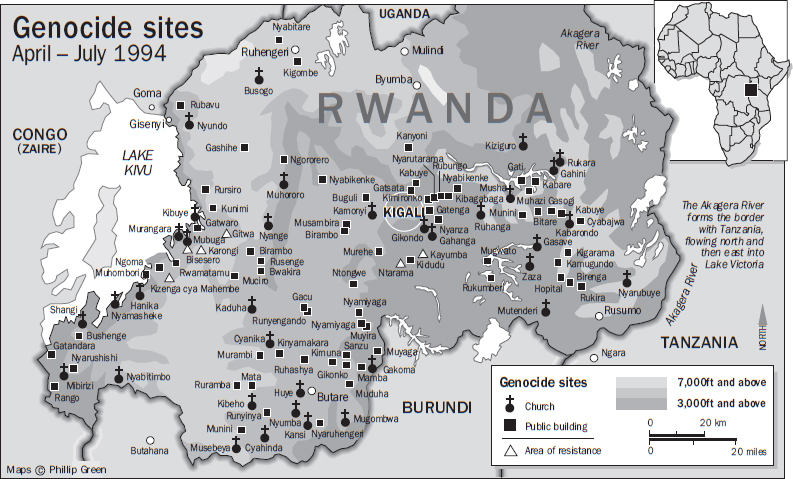
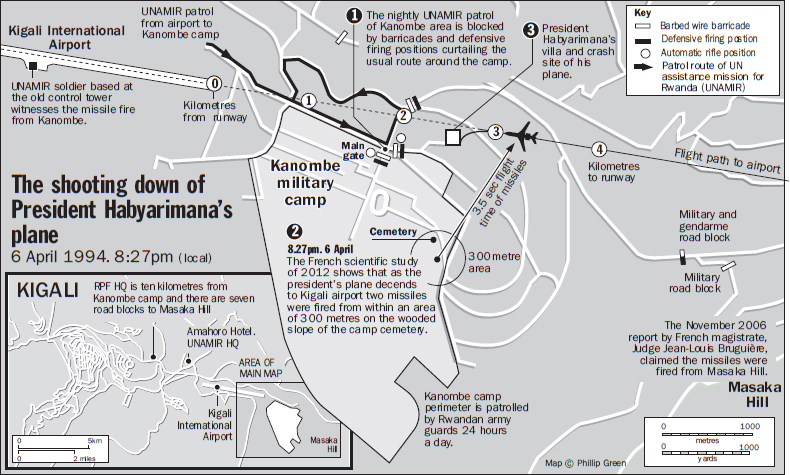
I t is twenty-five years since the genocide of the Tutsi of Rwanda in 1994, when in the course of three terrible months more than 1 million people were murdered in one of the most horrific crimes of modern history. The genocide was committed in the name of a racist ideology known as Hutu Power and, in a planned and political operation, the intention of the perpetrators was the elimination of a minority people.
The basic facts of the genocide of the Tutsi, documented and detailed in international inquiries, by journalists and contemporary historians, might seem incontrovertible. This has not prevented a pernicious campaign of propaganda that exists to undermine the established facts and minimise what occurred. This is genocide denial, and in its aid facts are reversed, disinformation and fake news promulgated, and phoney science given credence.
This book tells the story of the denial campaign waged by the Hutu Power movement and designed to knowingly deceive public opinion. With contempt for factual evidence the perpetrators of this genocide have tried to alter the story, diminishing the death toll, claiming the killing was in self-defence, and blaming the victims. They have talked of mutual violence and tried to explain the huge number of dead as the result of inter-ethnic war. They have claimed that the killing of Tutsi was a response to the fear and chaos of war and that there was no central planning for any of the massacres. The gnocidaires continue to maintain that the mass murder of Tutsi resulted from a spontaneous uprising by an angry population. They argue there was no genocide of the Tutsi. With no planning or preparation, they argue the intent to destroy a human group was lacking, and so with no intent, the 1948 Genocide Convention does not apply.
The idea of a spontaneous slaughter is not borne out by direct witnesses, by survivors or by the collective research of internationally recognised experts.
There is nothing spontaneous about genocide. The father of the 1948 Genocide Convention, a Polish lawyer, Raphael Lemkin, described the crime as the result of a coordinated plan of action, and not a sudden and abominable aberration. Genocide arises from a conspiracy against people who are chosen as victims because they are members of a target group. The destruction of a human group, in whole or in part, requires effective propaganda to spread a racist ideology that defines the victim as being outside human existence. It requires a dependence on military security and a certainty that outside interference will be at a minimum.
The gnocidaires of Rwanda were masters of deceit. These skilled propagandists created a powerful weapon, the hate radio RTLM, the voice of genocide, providing a steady stream of fake news. The gnocidaires used sophisticated information management. With disinformation they camouflaged their coup dtat, pretended the elimination of the political opposition was unexpected political violence, and claimed at the outset to have been powerless in the face of a series of catastrophic events.
In a masterstroke of public relations, the gnocidaires placed the United Nations at the centre of their plans. They used their membership of the Security Council to promote genocide denial. The blueprint for their denial campaign was found in UN documents, in the diplomatic language of cables and letters, and in archives abandoned in Rwandan embassies abroad. As the death toll increased through April 1994, Rwandas diplomats explained how there were victims on all sides. The gnocidaires turned the Security Council into a global forum to give voice to a genocidal regime whose sole policy was the extermination of a part of the population.
~
Denial is an integral part of genocide. One of the pre-eminent scholars of the crime, US professor Gregory Stanton, describes it as a process in ten stages. The crime begins with the classification of the population, proceeds to the symbolisation of those classifications, and includes discrimination against a targeted group, the dehumanisation of the pariah group. The crime requires organisation, the polarisation of the population, preparation by killers, the persecution of the victims, and the extermination of the victims. The denial of the crime is a part of the process. Denial ensures the continuation of the crime once it is initiated. It incites new killing. It denies the dignity of the deceased and mocks those who survived. In all cases, the final stage of genocide is the denial it ever happened.
The perpetrators of genocide rarely show remorse. Instead, they use deceit to deny the crime, to try to prove that events have been misinterpreted. In the case of Rwanda, there were numerous supporters who rallied to the Hutu Power cause. Like those who tried to prove the gassings exaggerated in the Nazi concentration camps, they too were determined to minimise, obscure and diminish what happened. In the trials of the gnocidaires at the International Criminal Tribunal for Rwanda (ICTR), there has been no shortage of scholars, regional experts, journalists and military officers to appear in court in their defence.
While the public face of Hutu Power has been the brutal militia in the DRC, the Forces Dmocratiques pour la Libration du Rwanda (FDLR), a direct descendant of the army responsible for the 1994 genocide, a covert campaign has sought to inflict reputational damage using information warfare. Both parts of the Hutu Power movement, military and civilian, rely on the same racist ideology that underpinned the genocide, that the Hutu constituted the majority, a distinct, homogeneous political category, and that political parties and therefore governments needed to reflect perceived HutuTutsi divisions.
In the aftermath of the genocide of the Tutsi, the plans for a campaign of genocide denial devised in the refugee camps in the DRC were found in documents abandoned by the gnocidaires, along with evidence of efforts to counter the false UN claims of genocide. A collection of documents from the National Archives of Rwanda revealed the disinformation strategies used at the UN and diplomatic instructions to further that denial issued by Hutu Powers so-called Interim Government.
Font size:
Interval:
Bookmark:
Similar books «Intent to Deceive - Denying the Genocide of the Tutsi»
Look at similar books to Intent to Deceive - Denying the Genocide of the Tutsi. We have selected literature similar in name and meaning in the hope of providing readers with more options to find new, interesting, not yet read works.
Discussion, reviews of the book Intent to Deceive - Denying the Genocide of the Tutsi and just readers' own opinions. Leave your comments, write what you think about the work, its meaning or the main characters. Specify what exactly you liked and what you didn't like, and why you think so.



